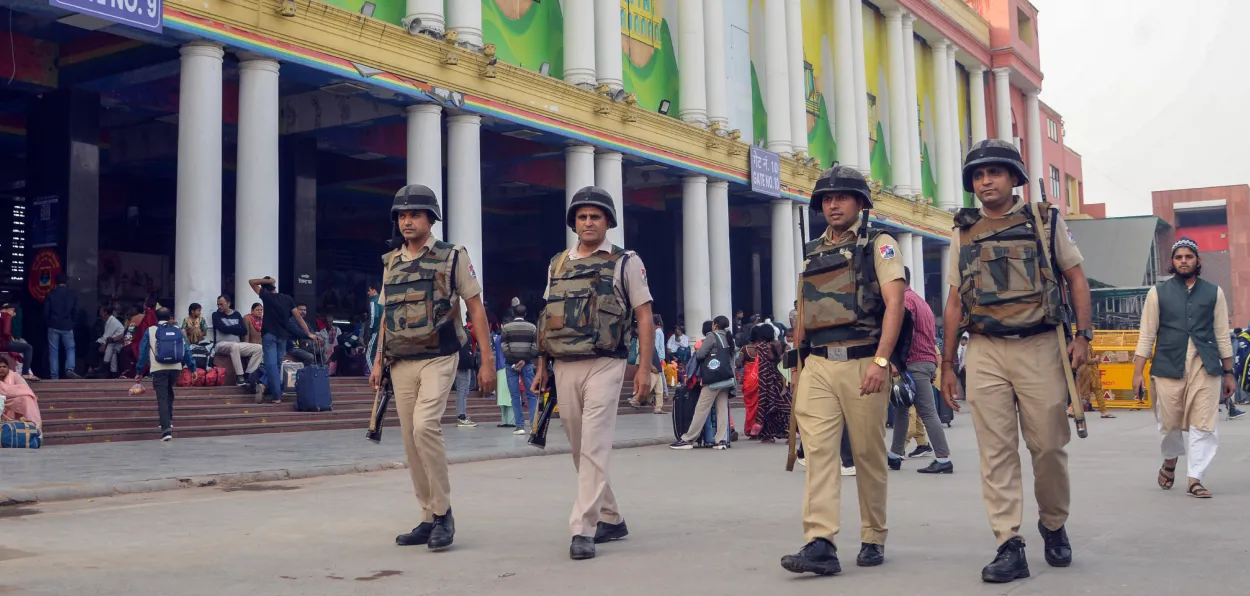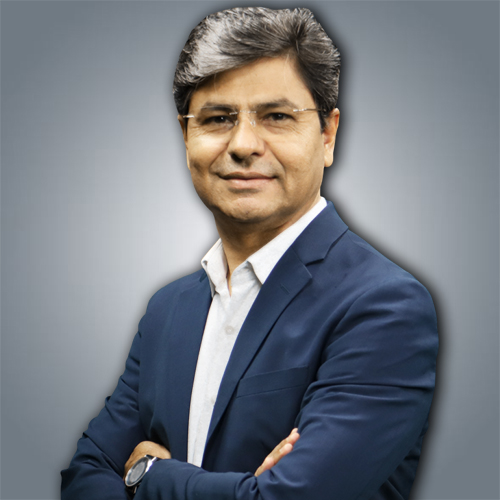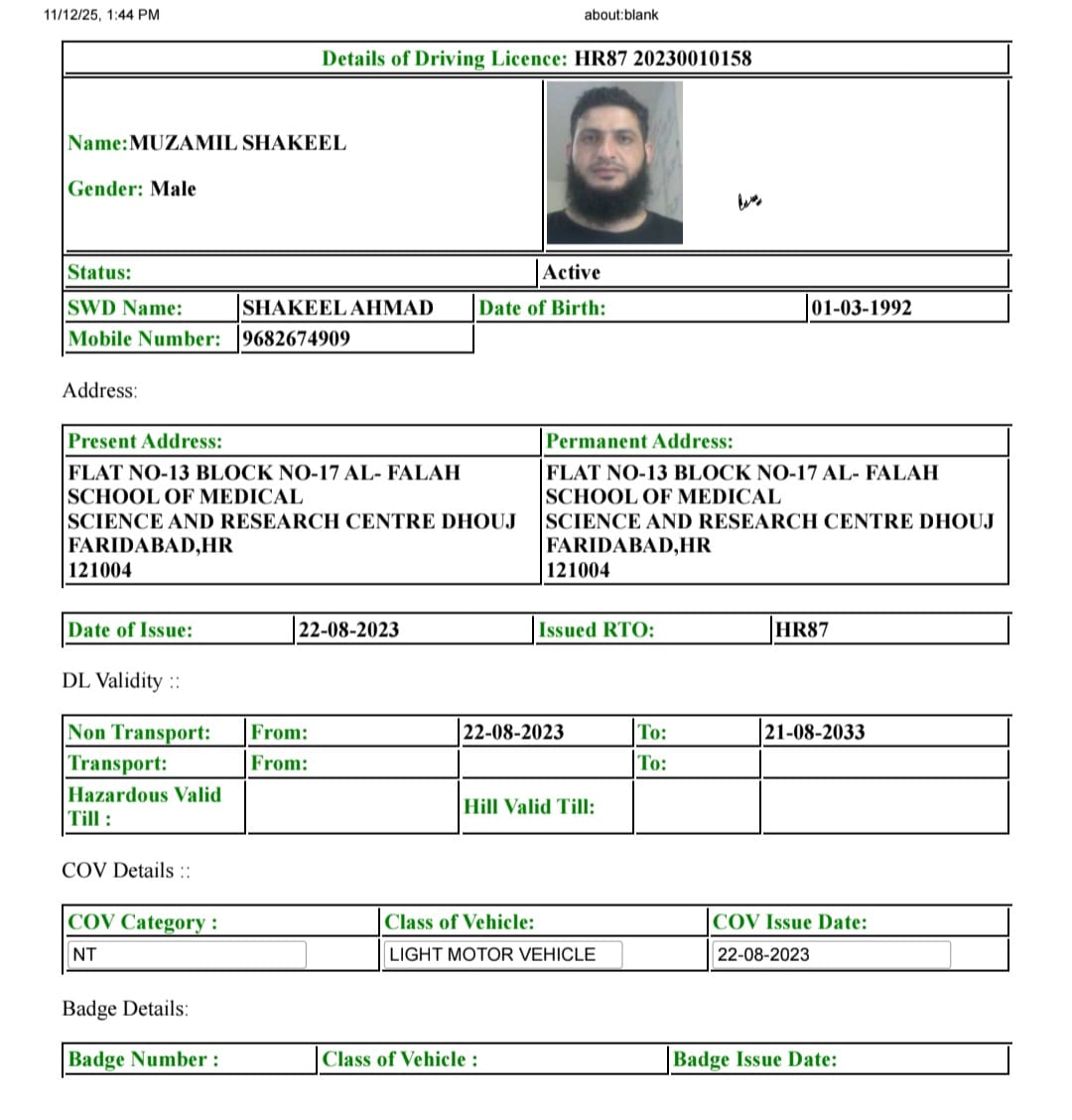
 Atir Khan
Atir Khan
Islamic radicalisation in India is spreading quietly — like fog drifting through the night — unseen until it blurs the line between faith and fanaticism. That creeping haze turned deadly when Delhi's calm was shattered by a car blast near the Red Fort, on the evening of October 10.
The explosion — chillingly reminiscent of the terror-scarred 1990s — killed ten people and injured dozens, ending years of fragile peace in a single instant. The shock deepened when investigators discovered that those behind the conspiracy were doctors, healers sworn to save lives.
Officials say the accused were part of a group plotting to detonate 1900 kilograms of ammonium nitrate, and that they were not acting alone.
Their trail leads beyond India’s borders. In 2020, Dr Umer, Dr Muzammil and Dr Adel travelled to Turkey at the invitation of Dr Uksha. The host never appeared. Instead, a man identifying himself as Jan Bhai, claiming Kashmiri roots, took charge. During their stay, the doctors met people from Syria, Jordan and Palestine — encounters that now appear less social and more strategic.
However Turkey has rejected reports about its engagement in 'radicalisation activities' targeting India.
Back home, encrypted Telegram chats and private groups on WhatsApp and Signal became their virtual meeting rooms.Dr Muzammil and Dr Umer joined a Faridabad university as lecturers, setting up their operational base there and even obtaining local driving licences to blend in.
According to investigators, Dr Shaheena, a 47-year-old divorcee, who developed a romantic relationship with much younger 33-year-old Dr Muzammil, had arranged ₹22 lakh to procure materials for the planned attack. Evidence suggests their communication and funding links extended to handlers associated with ISIS and other global terror networks.
 Driving Licence of Dr Muzamil Shakeel
Driving Licence of Dr Muzamil Shakeel
When television crews reached Dr Shaheena’s home in Lucknow, they found her elderly father in shock — a man unable to comprehend how his children, his symbols of pride and promise, could be accused of such betrayal. The old man took pauses before answering a volley of questions from media persons. He was sure his children were brilliant, as they had struggled to clear the country’s tough medical exams to enter medical colleges.
Perhaps, in between those pauses, he was also contemplating whether he missed tell-tale signs of his daughter and son getting involved in terrorist activities. Maybe he could have been more observant and prevented it?
In Old Delhi, journalists visiting the modest home of Mohsin Ali, a battery-rickshaw driver killed in the Red Fort blast, found grief etched on every face. His widow and two school-going children remain paralysed by loss. Neighbours whisper condolences and fears alike: Who will look after them now?
Investigators believe the doctors’ journey toward extremism began in Srinagar, where a cleric told Dr Muzammil and Dr Umer that they were “chosen for a higher purpose” — not to heal, but to serve a divine cause.
Ironically, it is often the intelligent who fall prey most easily; their reasoning is not absent, merely misdirected.
In a separate breakthrough, Gujarat’s Anti-Terrorism Squad recently arrested Hyderabad-based doctor Ahmed Mohiyuddin Saiyed — educated in China — along with two alleged accomplices. The trio, officials say, were developing ricin, a deadly toxin derived from castor beans, intended to be used as a biological weapon to perpetuate terror. They had already conducted reconnaissance in Lucknow, Delhi and Ahmedabad.
The arrests revealed chilling links to global extremist networks experimenting with chemical warfare.
The involvement of educated professionals in terror plots poses a disturbing question: what transforms intellect into ideology? These doctors — once trusted to protect life — became instruments of death. Their fall underscores the power of manipulation when belief is divorced from empathy.
They were made to believe that dying for faith was noble. They forgot that the true test of faith is to live with honour — to serve one’s family, profession and country with integrity and living a decent life.
No civilisation has ever been perfect. What sustains one is not grievance, but attitude — the courage to think clearly, the strength to resist hate, and the wisdom to choose life over ideology.
India’s challenge is not only to punish but also to prevent. The state must act firmly against those who plot terror, but it must also lead a parallel campaign of deradicalisation — one that reaches minds before they drift too far into the fog.
ALSO READ: Islamic scholars must declare terror and suicide bombing as haram
Every Indian, regardless of religion, must be part of this effort. Parents, teachers and community leaders must watch over the young — both offline and online- not with suspicion, but with care.
